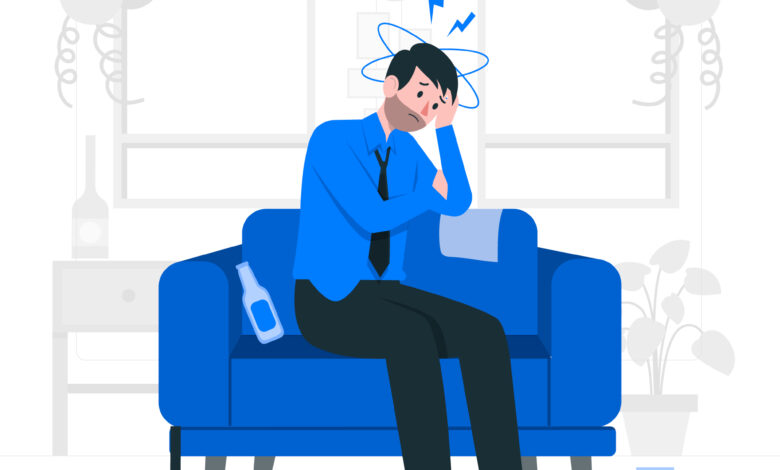Understanding Alcoholic Eyes: Causes and Effects

Alcohol consumption is a common part of many cultures around the world. While moderate drinking can be a part of social events, excessive alcohol intake has numerous health implications, including effects on eye health. This article delves into the causes and effects of what is colloquially known as “alcoholic eyes.”
ShortTerm Effects of Alcohol on the Eyes
The immediate effects of alcohol on the eyes are temporary and can vary from person to person. Common shortterm symptoms include:
- Blurry Vision: Alcohol can decrease the eyes’ ability to focus, leading to blurred vision.
- Dry Eyes: Alcohol acts as a diuretic, which can lead to dehydration and dry eyes.
- Impaired Eye Muscle Coordination: This can result in double vision or difficulty tracking moving objects.
- Slower Pupil Reaction: Slower iris reactions can impair the ability to adapt quickly to changes in light, affecting night vision.
LongTerm Effects of Alcohol on the Eyes
Chronic alcohol abuse can lead to more serious and sometimes irreversible eye conditions, such as:
- Alcoholic Optic Neuropathy: This condition can result in painless vision loss, decreased peripheral vision, or reduced color vision.
- AgeRelated Macular Degeneration: Heavy drinking may accelerate this condition, which affects the central part of the retina and can lead to blindness.
- Cataract Formation: There is evidence to suggest a link between heavy alcohol use and the development of cataracts.
Causes of Alcoholic Eyes
The term “alcoholic eyes” can refer to the physical appearance of the eyes, such as redness or yellowing, as well as the functional impairments caused by alcohol. The causes include:
- Vasodilation: Alcohol consumption can cause the blood vessels in the eyes to widen, leading to redness and increased blood flow.
- Liver Damage: Chronic alcohol abuse can lead to liver problems, which may cause yellowing of the sclera (the white part of the eye).
- Nutritional Deficiencies: Alcoholism can result in poor nutrition, contributing to eye health issues.
Protecting Eye Health
To protect eye health, it is crucial to:
- Limit Alcohol Intake: Following recommended guidelines for alcohol consumption can help prevent the negative effects on the eyes.
- Maintain a Balanced Diet: Ensuring a diet rich in vitamins and minerals supports overall eye health.
- Stay Hydrated: Adequate water intake can help mitigate the dehydrating effects of alcohol on the eyes.
The recommended guidelines for alcohol consumption are designed to help individuals make informed choices about drinking while minimizing the risk of alcoholrelated harm. According to the Centers for Disease Control and Prevention (CDC), moderate alcohol use is defined as up to one drink per day for women and two drinks per day for men. Similarly, the Dietary Guidelines for Americans 20202025 suggest that adults of legal drinking age can choose not to drink or to drink in moderation by limiting intake to these amounts.
It’s important to note that these guidelines are not a onesizefitsall recommendation. Certain individuals should avoid alcohol altogether, including those who are pregnant, under the legal drinking age, have certain medical conditions, or are taking medications that can interact with alcohol. Additionally, even moderate drinking may increase the risk of certain cancers and other health issues.
The National Institute on Alcohol Abuse and Alcoholism (NIAAA) defines binge drinking as a pattern of drinking that brings blood alcohol concentration (BAC) to 0.08 percent or higher, typically occurring after four drinks for women and five drinks for men in about two hours. Heavy alcohol use is described as binge drinking on five or more days in the past month, or consuming eight or more drinks per week for women and 15 or more drinks per week for men.
To reduce the risk of harm from alcoholrelated disease or injury, it is advised to drink no more than 10 standard drinks a week and no more than four standard drinks on any one day. The less you choose to drink, the lower your risk of harm from alcohol. For some people, not drinking at all is the safest option.
Understanding and adhering to these guidelines can help individuals maintain a healthy lifestyle while enjoying alcohol responsibly. It is always recommended to consult with a healthcare professional for personalized advice regarding alcohol consumption, especially if you have health concerns or conditions that may be affected by alcohol.
Conclusion
Understanding the impact of alcohol on the eyes is essential for maintaining good vision and overall health. By being aware of the potential risks and taking steps to minimize alcohol consumption, individuals can help protect their eyes from the adverse effects of alcohol.
For those experiencing any eyerelated symptoms or concerns, it is important to consult with a healthcare professional for proper diagnosis and treatment. Remember, moderation is key, and taking care of your eyes is an investment in your longterm health and wellbeing.



